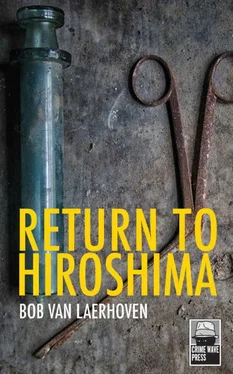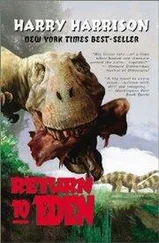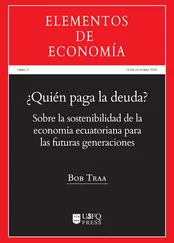I get down from the bed and feel a little dizzy, nothing more. And he’s right: my belly isn’t completely flat, but it’s a lot less swollen than it was this morning. Even the oedema in my lower legs is virtually gone. I feel no pain between my legs. I saw my father as I awoke from the anaesthetic, but that must have been my imagination, nothing unusual after a period of sedation. In spite of everything, I still don’t trust the situation. But if Kanehari and my father have robbed me of my baby, I would at least be in some kind of physical pain. Almost unconsciously I check my breasts. Dr Kanehari’s glasses veer sideways. I sense an air of disgust. Maybe that is also my imagination. The tension he’s radiating is tight as a drum. He’s probably scared he might get into trouble. I sneak a peek at the bed. No trace of blood. It looks exactly the same as the bed I fell asleep in after the injection.
“What time is it?”
“Ten o’clock.”
“Have I been asleep for nine hours unbroken?”
Kanehari snorts. “Some people have a stronger reaction to sleep medication than others. It’s nothing unusual. Are you hungry? Thirsty?”
“Thirsty, yes, but not hungry.”
“You’re clearly sensitive to the anaesthetic. We followed the correct procedure. There were no mistakes.” The doctor’s gaze drifts in the direction of the door.
I can’t think straight. It dawns on me that I don’t want to go back to the Islamic Centre, but I’m also scared of being outside during the hours of daylight. I grab my bag. Kanehari shows me the bathroom. I wash and dress. I leaveThe chuddar in my bag is at the ready, but I don’t put it on yet. When I leave the bathroom, the doctor is waiting for me, his hands pressed stiffly into his jacket pockets. I pay him the agreed fee and say nothing. He leads me to the door.
I take out my veil. I notice him look at it. I skilfully wrap the chuddar around my head. I’ve become something of an expert.
It comes to me at the door.
“Why didn’t I see a nurse?” I say. “You said “we” a moment ago. Didn’t you say you intended to supervise the birth on your own, for the sake of discretion?”
Kanehari remains tight-lipped. I can see myself in his glasses: a tall, veiled figure who fills him with fear, disgust and greed.
Hiroshima – metropolitan police headquarters – inspector Takeda and chief commissioner Takamatsu – March 10 th1995
As Orandajin – a Dutchman – Takeda is more apprehensive of the strict hierarchy in the Japanese police service than his colleagues. After assessing the crime scene, he drives immediately to his district’s police station. Chief commissioner Takamatsu receives him in his office. Takeda bows, the chief commissioner nods and motions him to get to the point. Takeda gives a detailed report. As Takeda had expected, the commissioner works himself into a serious fuss. He refers to the baby corpse as “a barbaric disruption of the harmony reigning in the City of Peace”. Takeda presumes the commissioner will have refined this slogan before the more important papers get wind of the affair. Takamatsu taps at his desk with a letter opener. He thinks Takeda was too easy on the photographer from “that rag” Shukan Gendai . Haul the bastard in and scare him shitless! As if a seasoned photographer working for a gutter tabloid could care less about police threats, especially when he knows they can’t follow them through. But Takeda bites his lip, nods and says in a composed manner that the commissioner’s order will be followed and that he’ll be sure to be less cautious with the press in the future. “Now of all times, this hideous crime, Takeda!” Takamatsu declaims, visibly irate. “The city will be crawling with foreigners soon for the fiftieth anniversary of the atom bomb! I demand an efficient and professional investigation and I demand results, fast! Don’t let this sordid affair cast a slur on your record of service, Takeda!” In the corner of Takamatsu office, the lacquered sheath of an officer’s sword from the Second World War graces the wall, hung there by the commissioner himself. Older officers claim he wields the blade with skill and speed to chop yuzu to flavour his soup. Takamatsu’s office does indeed smell of Japanese citrus all the time, but Takeda is pretty sure the story about the yuzu is made up. It’s typical of the jokes they tell when they get drunk after work and there are no inspectors around, Takeda excluded. Takeda’s half foreigner. That’s why the inspector doesn’t come across as their superior, in spite of his rank.
The commissioner ends the conversation with a tirade over “serious irregularities” in the social order brought about by the shinjinrui – the “new type of human” – and their antics, young people set adrift by the economic crisis who have nothing to do but loaf around and commit crimes. What this has to do with the baby is a mystery to Takeda, but he nods benignly nevertheless. Takeda knows that Takamatsu is dreaming about a career in local politics. He asks himself if the chief commissioner will then be at the beck and call of the powerful extreme right organisations that have a lot of influence in Hiroshima – and in Tokyo and Osaka for that matter. Rumour has it they even have close links with the force.
“You can go, Takeda,” the chief commissioner barks. ‘Don’t disappoint me!”
Takeda bows, noticing his hands dangling at his sides in the process.
Huge hands. Murderer’s hands according to his wife.
Hiroshima – Mitsuko searching the city for a place to sleep – March 11 th1995
Iremember precious little of the hours after I left Dr Kanehari’s clinic. I ended up in Hiroshima’s neon neighbourhood. I don’t know the city, so I’m not sure what the district is really called. I was surrounded by shopping centres full of people of my own age, hanging around, the girls in colourful and often outrageous outfits. Since my arrival on the mainland I’ve noticed that my knowledge of society is more limited than I had imagined. Theoretical knowledge is misleading. It’s experience that shapes us.
It’ll be dark in a few hours. I don’t know where to go. Fortunately, I took all my money and personal possessions with me when I left the Dambara Centre for my appointment with Dr Kanehari because I couldn’t find a reliable place to hide them. But I left my clothes behind.
I decide to grab a hamburger in a place full of blaring music and garish colours. My father always insisted on eating traditional Japanese food. I loosen my chuddar from underneath as Akkira taught me. People are looking at me but I lower my eyes and peer at my surroundings through my lashes. The hamburger tastes like soggy cardboard, the Cola leaves me down in the dumps. If my father was right about the food that many Japanese prefer to their traditional cuisine, wasn’t there a chance that he had been right when he said that the country needed a new leader? I look around and see smiling faces. I don’t remember laughter like that on Hashima. Everyone in the hamburger joint seems self-assured, high-spirited, carefree.
And the racket! Chitter-chatter right and left like tiny mountain streams coming from God knows where, wriggling and criss-crossing one another. My ears are ready to burst. I feel dizzy. I miss having the sea in the background, the cawing of the seagulls. But the relentless vitality of all these people surrounding me, running on escalators, storming in and out, roller-skating on the sidewalks, unleashes a longing within me. I don’t want to go back to Hashima. I want to be like them: wear bright colours, shave my legs, go dancing in discos.
Читать дальше












